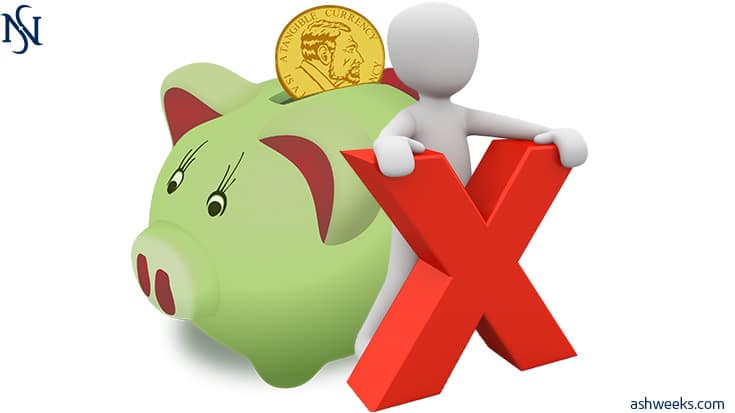How have your decisions been made?
Chances are, your life up until 15 years of age had been very similar to those of your peers and people your age. You had been in the education system since you were 4 or 5, you had been encouraged to participate in sport outside of school as well as participate in intraschool activities. You had been socialising for years, you had a small or large range of household responsibilities, and you may or may not have been given pocket money/an allowance/etc for your time.
However, up until that age you hadn’t had to make many decisions that affected your future path in life. From that point onwards, the level of responsibility placed on you increased and you had more independence. The direction your life takes from that point is more and more because of your decisions and actions, and you have no figure of authority you can blame for the outcomes or lack of outcomes of your actions. What choices will you make?
Conforming Goals
When you think of the future, what do you think you will be doing?
Do you plan to complete secondary school with the highest marks you can get? Do you aim to get into a prestigious university? Do you plan to get into a solid career that provides a reliable and stable income? Do you plan to have kids before 25, save up and buy a house of your own? Spend most of your life paying off a mortgage, saving, then retiring?
The context of these goals is materialistic and consumerist in nature. It is very general and I am not suggesting anyone has these exact goals and only these goals, but I am suggesting that if you have never assessed what you want to get out of life then your goals are heavily influenced by those around you.
If you don’t form your own decisions, others will form them for you.
The Problem With Conformity
Conforming to the expectations of others means you’re not taking your life into your own hands.
Doing what everyone else is doing is an impulse that we have evolved to have. The actions of the masses must be safe and are probably a good default if you don’t have a better alternative. The issue with conformity is that popular does not equal optimal, especially for you. Go to the top music charts right now and I bet there are songs there that you don’t like. Turning to those charts is a good option if you can’t be bothered to look for, or are unaware of, better alternatives. But they are out there.
The goals listed above aren’t necessarily good or bad — it all depends on the person whose goal it is. No one knows you like you do. Perhaps you don’t even understand yourself as well as you could if you have never taken the time to know yourself.
Your goals affect your actions and your actions determine where you go (and don’t go) in life. And if you haven’t chosen your goals yourself, then you’re probably not moving towards a life where you have what you want to have, you are who you want to be, and you do what you want to do.
You Have a Decision to Make
If you’re still in school, decisions are often brought forward to you. However, as you become more independent, the opportunities and decisions present themselves whenever you take notice of them. Ignoring the decision means you will stick to the status quo. What will you choose to do?
The decision-making process might involve:
- you are told you have a decision to make;
- you assess your options; and,
- you choose one of the options based on your goals.
But your process might be different. Perhaps (c) doesn’t apply to you and the decision is made by what your family, friends or teachers say you “should” do.
Sure, they might predominantly have your best interests in mind, but they don’t know you like you know yourself and they probably aren’t aware of the availability or achievability of other options you can choose from.
For example, I was told when I was in primary/elementary school that I should be an accountant because I enjoyed and was good at maths. I was probably between 8 and 13 years old during these times. They couldn’t possibly know what career would be best suited to me by the time I finished my schooling. Additionally, the pool of career options that they selected from before suggesting one for me was probably influenced by their biases, values and fears: accounting might have been a career choice spoken of more frequently in their presence and thus more easily brought to mind; my parents’ generation and especially the generation of my grandparents seemed to value safety, security, and stability in income generation more than those of younger generations, and accountants had a relatively stable and successful future in their careers; and, the people advising me may have been afraid of change from what they’re used to and therefore wouldn’t recommend anything new or “risky”.
Being aware of the influences on other people’s decisions is important when they are giving you information. It allows you to assess how accurate and relevant the information may be, which can protect you from making a life decision based on a substandard decision-making process.
Be Aware
When there is a decision to be made, it is often not brought right to your face.
In the above simplified process, (a) refers to any situation in which you realise there is a decision to be made. It might be explicit, such as your teacher or university telling you the subjects you do in the coming years are your choice. It might be a social queue such as a coming-of-age, like being old enough to begin driving or get a job, or a completion of secondary education. It might also be something appearing in your awareness that you had never considered before and from that point onwards you know you have the choice of paying more attention to it and taking actions based on it, or you have the choice to continue your routine as if it didn’t impact you.
For example, reading this blog post might cause you to realise that you are responsible for the direction your life takes and if you weren’t aware of that prior to reading this then you have two main choices: (1) continue living by the expectations and influences of those around you; or, (2) you can take stock of your current position in life and make plans for moving it in a direction you desire.
The point is, the decision is yours and it should be based on your goals and your passions and interests. Don’t just do what everyone else does by doing well in secondary school just because there’s an expectation to do so, don’t just go to university because your family or friends pressure you to, don’t choose to generate your income through a job or career until you have given the other options due consideration, and if you do choose the job/career option then pick the career that will meet your financial goals and provide you with a sense of fulfilment — not the career that your family or peers think you “should” do.
And for those of you who have a passion you want to follow that doesn’t involve a well-paid job then you know you have to have a business and/or investments on the side of your passion-based career. Whatever your goals in life, there is a time and money solution that enables you to do it. Don’t be one of those people in the “I hate Mondays” club. Take control of your future and get yourself where you want to be in life.





